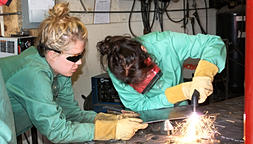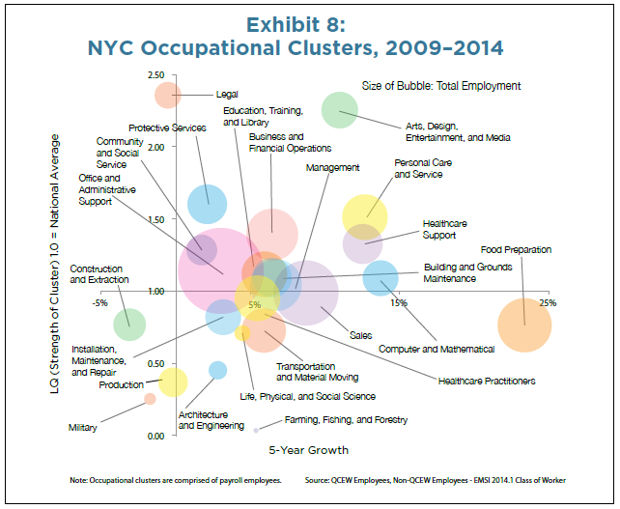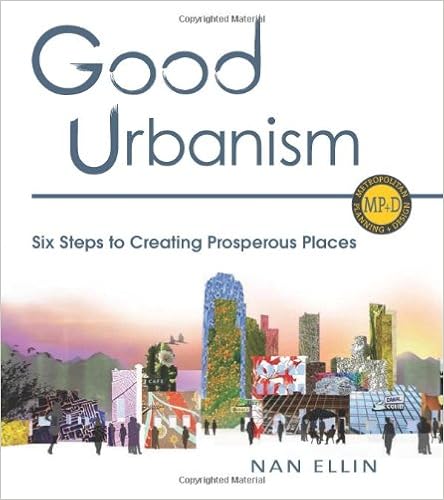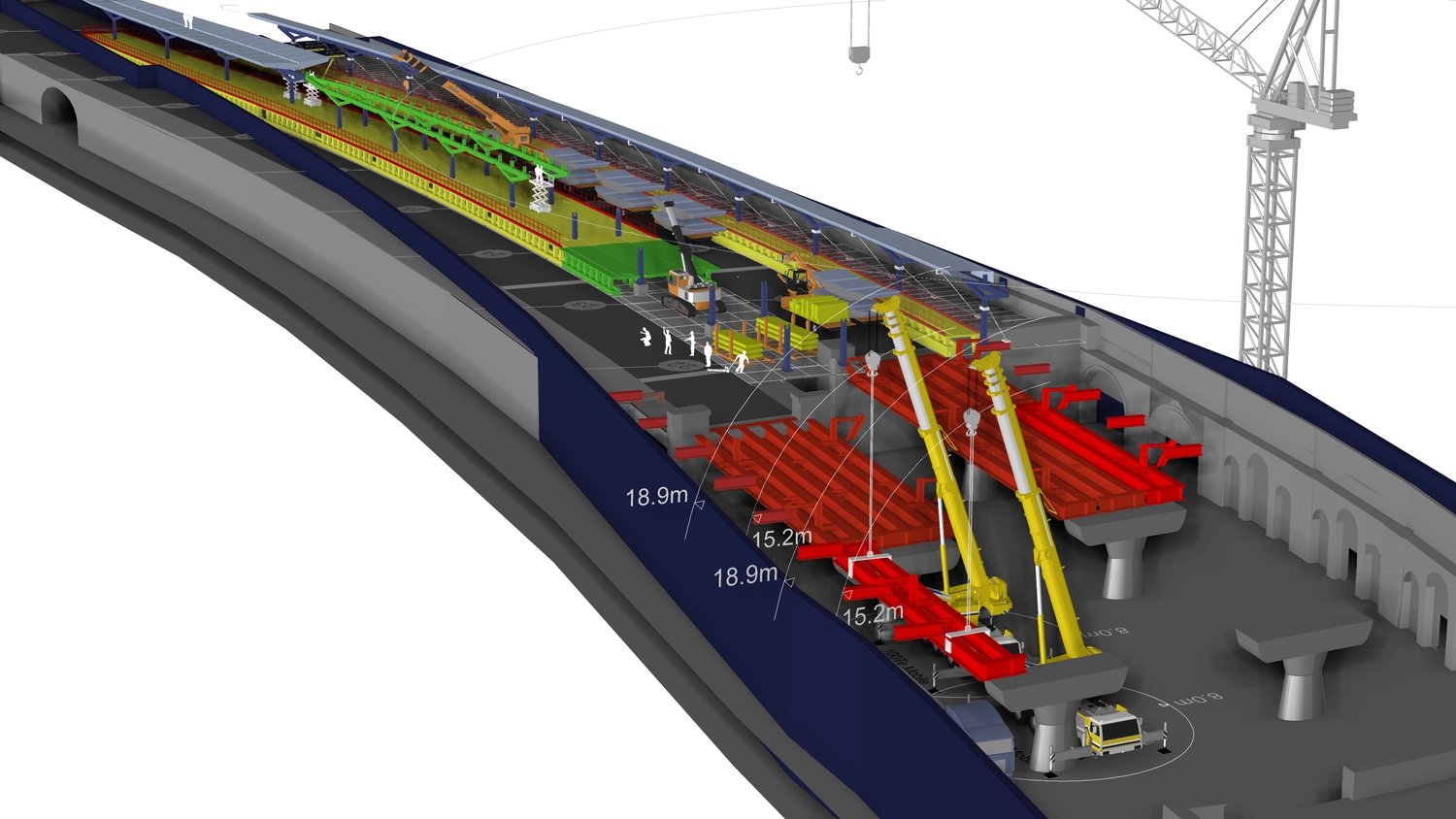
Friday, July 31, 2015
Thursday, July 30, 2015
Myths Regarding Young Engineers
From the current issue of the Schumpeter column in the Economist:
"Jennifer Deal of the Centre for Creative Leadership, an executive-training outfit, and Alec Levenson of the University of Southern California studied 25,000 people in 22 countries and concluded that most generalisations about millennials as employees are “inconsistent at best and destructive at worst.” Consider the idea that they do not want to be told what to do. In a poll of 5,000 workers Ms Deal and Mr Levenson found that 41% of millennials agreed that “employees should do what their manager tells them, even when they can’t see the reason for it,” compared with 30% of baby-boomers and 30% of members of generation X (born between the mid-1960s and 1980). Or the idea that firms should communicate with digital natives through digital media. More than 90% of millennials said they wanted to receive their performance evaluations and to discuss their career plans face-to-face.
It would be going too far to say that there are no differences between the generations. There are variations in consumption patterns. Young people are much more likely to get their news from BuzzFeed than baby-boomers are. But these do not necessarily translate into different attitudes to work. Ms Deal notes that millennials who have been in a job for a couple of years have much more conventional attitudes to work than those of the same age who are still at university. Some differences in attitudes cross the generations. In CEB’s recent poll, 51% of millennials said they would look for a job at another organisation within the coming year compared with 37% of generation X-ers and 18% of baby-boomers. It also discovered that millennials are more likely to seek and value feedback from their managers than members of other generations are. But this is because they are still young, and not because of the particular generation they were born into. Young people in every generation change jobs more frequently than older people because they are looking for the right one. Young people also look for feedback because they are still learning the ropes."
"Jennifer Deal of the Centre for Creative Leadership, an executive-training outfit, and Alec Levenson of the University of Southern California studied 25,000 people in 22 countries and concluded that most generalisations about millennials as employees are “inconsistent at best and destructive at worst.” Consider the idea that they do not want to be told what to do. In a poll of 5,000 workers Ms Deal and Mr Levenson found that 41% of millennials agreed that “employees should do what their manager tells them, even when they can’t see the reason for it,” compared with 30% of baby-boomers and 30% of members of generation X (born between the mid-1960s and 1980). Or the idea that firms should communicate with digital natives through digital media. More than 90% of millennials said they wanted to receive their performance evaluations and to discuss their career plans face-to-face.
It would be going too far to say that there are no differences between the generations. There are variations in consumption patterns. Young people are much more likely to get their news from BuzzFeed than baby-boomers are. But these do not necessarily translate into different attitudes to work. Ms Deal notes that millennials who have been in a job for a couple of years have much more conventional attitudes to work than those of the same age who are still at university. Some differences in attitudes cross the generations. In CEB’s recent poll, 51% of millennials said they would look for a job at another organisation within the coming year compared with 37% of generation X-ers and 18% of baby-boomers. It also discovered that millennials are more likely to seek and value feedback from their managers than members of other generations are. But this is because they are still young, and not because of the particular generation they were born into. Young people in every generation change jobs more frequently than older people because they are looking for the right one. Young people also look for feedback because they are still learning the ropes."
Wednesday, July 29, 2015
A Paragraph to Ponder
From the NYT Tom Friedman column this week
"On July 9, Agence France-Presse reported that the International Monetary Fund estimated Saudi Arabia, whose population tripled since 1975, would run a budget deficit this year exceeding "$130 billion, the largest in the kingdom's history, . . ."
"On July 9, Agence France-Presse reported that the International Monetary Fund estimated Saudi Arabia, whose population tripled since 1975, would run a budget deficit this year exceeding "$130 billion, the largest in the kingdom's history, . . ."
The Risky Business of Texas
From the Risky Business Project:
"The Southeast U.S. and Texas are experiencing an economic boom, mostly due to manufacturing and energy industry growth. But that boom is at risk from unchecked climate change, which could render this region—already one of the hottest and most weather-vulnerable of the country—at significant economic risk. However, if policymakers and business leaders act aggressively to adapt to the changing climate and to mitigate future impacts by reducing their carbon emissions, this region can lead in responding to climate risk. The Southeast can demonstrate to national and global political leaders the kind of strong response necessary to ensure a strong economic future.
This region, comprising the 11 Southeastern states of Alabama, Arkansas, Florida, Georgia, Kentucky, Louisiana, Mississippi, North Carolina, South Carolina, Tennessee and Virginia as well as Texas to the west, has witnessed a major recent manufacturing boom, and is poised for further economic growth in the coming years. [i] In 2013, manufacturing contributed $2.1 trillion to the U.S. economy—more than 12% of GDP—and accounted for 88% of all U.S. exports, a remarkable 51% increase from declines during the last recession. The region's economic vitality makes it one of the most productive parts of the country.
But climate change is putting that productivity at risk. While the Southeast and Texas are generally accustomed to heat and humidity, the scale of increased heat—along with other impacts such as sea level rise and storm surge—will likely cause significant and widespread economic harm, especially to a region so heavily invested in physical manufacturing, agriculture and energy infrastructure.
If we continue on our current greenhouse gas emissions pathway, [ii] the Southeastern U.S. and Texas will likely experience significant drops in agricultural yield and labor productivity, along with increased sea level rise, higher energy demand, and rising mortality rates. In particular, the region's agricultural sector will be negatively influenced by the changing climatic conditions, with several commodity crops likely to face severe yield declines. Meanwhile, residents and businesses will likely be affected by higher heat-related mortality, increased electricity demand and energy costs, and declines in labor productivity, threatening the manufacturing base that is increasingly driving the regional economy. And in some cities, such as Miami and New Orleans, sea level rise will put significant amounts of existing coastal property at risk."
Tuesday, July 28, 2015
Sunday, July 26, 2015
Saturday, July 25, 2015
A Paragraph to Ponder
From Politico:
"Today, we spend more than five times as many federal dollars on roads as we spend on public transit. We spend more building new road capacity than we spend fixing existing roads. Those priorities affect the competitiveness of our economy, the sustainability of our environment, the livability of our cities, and the mobility of the poor, not to mention the amount of time we spend banging our fists on our steering wheels in traffic and the likelihood that our bridges will collapse. But most of our transportation choices aren’t made in Washington. Congress is mostly a pass-through, funneling cash to states with relatively few strings attached."
"Today, we spend more than five times as many federal dollars on roads as we spend on public transit. We spend more building new road capacity than we spend fixing existing roads. Those priorities affect the competitiveness of our economy, the sustainability of our environment, the livability of our cities, and the mobility of the poor, not to mention the amount of time we spend banging our fists on our steering wheels in traffic and the likelihood that our bridges will collapse. But most of our transportation choices aren’t made in Washington. Congress is mostly a pass-through, funneling cash to states with relatively few strings attached."
Friday, July 24, 2015
Thursday, July 23, 2015
Wednesday, July 22, 2015
Golf and the Second Curve
After an exciting weekend of golf during the British Open, it's important to reflect on what veteran player Tom Watson has to say about the state of the game:
"Golf is expensive, it is slow and takes too long to play, and it is a hard game to learn."
Some 400,000 players quit golf in 2013 in the U.S. In the U.K., club membership dropped by nearly a quarter between 2004 and 2014.
Golf is under threat like many individuals and institutions in the world. Many have "First Curve" problems - - they are having problems managing their downslope. Everything and every person experiences the First Curve. A period of growth, and in most cases exponential growth, a period of peaking and finally a period of decline. Governments have First Curve problems (our Congress and inability to work together), schools have First Curve problems (the decline in our global educational standing), individuals have First Curve problems (the transition from manual manufacturing to robotic manufacturing), our economic competitiveness has First Curve problems (the scale and scope of our infrastructure decay), etc. A core problem we all face is the management of the First Curve and the transition to the Second Curve.
It's important that people and institutions rethink their First Curve - especially during the range of peaking. This is the point where adjustments can be made - think in terms of a Second Curve and continued growth.
Don't think Second Curve during the First Curve decline phase. It will be too late.
Tuesday, July 21, 2015
Monday, July 20, 2015
Wednesday, July 15, 2015
Tuesday, July 14, 2015
A Paragraph to Ponder
From The Age of Megaprojects by Nancy Alexander:
"Already, spending on megaprojects amounts to some $6-9 trillion a year, roughly 8% of global GDP, making this the “biggest investment boom in human history.” And geopolitics, the pursuit of economic growth, the quest for new markets, and the search for natural resources is driving even more funding into large-scale infrastructure projects. On the cusp of this potentially unprecedented explosion in such projects, world leaders and lenders appear relatively oblivious to the costly lessons of the past."
"Already, spending on megaprojects amounts to some $6-9 trillion a year, roughly 8% of global GDP, making this the “biggest investment boom in human history.” And geopolitics, the pursuit of economic growth, the quest for new markets, and the search for natural resources is driving even more funding into large-scale infrastructure projects. On the cusp of this potentially unprecedented explosion in such projects, world leaders and lenders appear relatively oblivious to the costly lessons of the past."
Monday, July 13, 2015
Sunday, July 12, 2015
A Goldfish Has a Longer Attention Span Than Humans
The actual number is nine seconds to eight seconds. Check out the book review by Jim Pawlak on Got Your Attention? by Sam Horn - link.


Portacool - An Investment for a Warming Planet
Portacool makes evaporative cooling units (aka swamp coolers). On a hot and warming plant, the ability to stay cool with portable cooling systems will be a "hot" issue. Look into this - nothing is more guaranteed in the market place more than increasing hot weather!!


How Elon Musk Works
One of the best business biographies that I have read is Ashlee Vance's Elon Musk: Tesla, SpaceX, and the Quest for a Fantastic Future. The book is on par with the recent Steve Jobs biographies. It helps an author when Musk himself is on par with Jobs.
How Elon Musk works - which sounds like the thinking of a engineer -

How Elon Musk works - which sounds like the thinking of a engineer -
- He diagnoses - he defines the problem.
- He learns, then figures out what to do.
- He is intensely rational when things get out of control.
- He is a great talent spotter and recruiter.
Important points from the book -
- Who you were definitely shapes who you are - a difficult childhood, and a lone read, became the stick-to-it learner/dreamer.
- The over-riding purpose has to be great to accomplish things as great as SpaceX and Tesla.
- Making it genuinely big, in a way that holds great promise to make a big difference, may require - really great risk.
- You really can read and study your way to genuine solutions. Not reading and studying can truly leave you behind. But true learning is about making deep-dives.
- The leader has to know enough to understand, be sharp enough and bold enough to decide, and then surround himself/herself with world-class talent.
- And, the work ethic required is true, all-in, stick-to-it work ethic.
He is not consumed by the idea of getting rich. He is much more the business leader with a master plan for humanity than the Trump-style business mogul. He views the Internet, renewable energy, and space as the three areas that would undergo significant change in the years to come and as the markets where he could make a big impact.

Saturday, July 11, 2015
Engineering and the Blackout
New report out by Cambridge University and Lloyd's insurance on the risk and consequences of a cyber attack on the U.S. electric grid system.
Friday, July 10, 2015
Civil Engineering In the Cross-hair of Culture Wars
Interesting article from NewGeography. From the article:
"Yet it has been decided, mostly by self-described progressives, that suburban living is too unecological, not mention too uncool, and even too white for their future America. Density is their new holy grail, for both the world and the U.S. Across the country efforts are now being mounted—through HUD, the EPA, and scores of local agencies—to impede suburban home-building, or to raise its cost. Notably in coastal California, but other places, too, suburban housing is increasingly relegated to the affluent.
The obstacles being erected include incentives for density, urban growth boundaries, attempts to alter the race and class makeup of communities, and mounting environmental efforts to reduce sprawl. The EPA wants to designate even small, seasonal puddles as “wetlands,” creating a barrier to developers of middle-class housing, particularly in fast-growing communities in the Southwest. Denizens of free-market-oriented Texas could soon be experiencing what those in California, Oregon and other progressive bastions have long endured: environmental laws that make suburban development all but impossible, or impossibly expensive. Suburban family favorites like cul-de-sacs are being banned under pressure from planners.
Some conservatives rightly criticize such intrusive moves, but they generally ignore how Wall Street interests and some developers see forced densification as opportunities for greater profits, often sweetened by public subsidies. Overall, suburban interests are poorly organized, particularly compared to well-connected density lobbies such as the developer-funded Urban Land Institute (ULI), which have opposed suburbanization for nearly 80 years."
The Cartel by Don Winslow
Best non-fiction book I have read in years. If it just sort of represents the truth in terms of who are the bad guys and who are the good guys in our drug wars - - we are in big trouble as what the end game looks like.
Also check our the trailer for the documentary - Cartel Land.

Also check our the trailer for the documentary - Cartel Land.

Thursday, July 9, 2015
Civil Engineering After The Big Glitch
After the Day of the Big Glitch on July 8, civil engineers might want to consider the following observation:
If builders built buildings the way programmers wrote programs, the first woodpecker that came along would destroy civilization.
If builders built buildings the way programmers wrote programs, the first woodpecker that came along would destroy civilization.
Wednesday, July 8, 2015
Engineering and the Fire Captain
Things are getting totally out of whack - see salary list. You have two demand curves going in opposite directions - a decline in property damage from fires due primarily to better engineering and material design and the increase in the poor condition of public infrastructure.
Just terrible public policy and decision making in terms of cost/benefit analysis.
Just terrible public policy and decision making in terms of cost/benefit analysis.
Tuesday, July 7, 2015
Columbus Idea Foundry
Excellent example of a craftsmanship and artistry alternative to traditional community college. Engineers need to support programs like this!!


Monday, July 6, 2015
A Paragraph to Ponder
From the New York Times:
"Blue Cross and Blue Shield plans — market leaders in many states — are seeking rate increases that average 23 percent in Illinois, 25 percent in North Carolina, 31 percent in Oklahoma, 36 percent in Tennessee and 54 percent in Minnesota, according to documents posted online by the federal government and state insurance commissioners and interviews with insurance executives."
"Blue Cross and Blue Shield plans — market leaders in many states — are seeking rate increases that average 23 percent in Illinois, 25 percent in North Carolina, 31 percent in Oklahoma, 36 percent in Tennessee and 54 percent in Minnesota, according to documents posted online by the federal government and state insurance commissioners and interviews with insurance executives."
The Paradox of Water Conservation
"Santa Barbara, for example, expects to lose $5 million if residents hit the city's 20 percent water use reduction target. Residents are going above and beyond and reached 37 percent in May. That's good for water supply but bad for financial stability.
This month, water bills in Santa Barbara rose between $13 and $120, depending on water use, to help the city recover lost revenue and activate a desalination plant.
"Our folks are coming in and saying `Hey, I'm doing everything right, why do I need to pay more?" said Joshua Haggmark, the city's water resources manager.
It's not clear precisely how widespread drought-related rate increases are because no government agency or association tracks them."

Term of the Week - Synthesized Divergent Ideas
Comes from the founder of Airbnb in a fascinating profile in the current issue of Fortune - The Education of Brian Chesky. The term means - going to unexpected sources for insight.
It's All About the 8%
From the New Yorker by Bill McKibben - Power to the People:
""Americans spend eight per cent of their disposable income on all forms of energy," David Crane told me. Crane is the CEO of NRG, the country's biggest independent power provider; the company operates more than a hundred energy-generation facilities, selling electricity to utilities that, in turn, sell it to customers. Nobody wants that eight-percent figure to rise, Crane said, because when energy prices go up the country tends to trip into recession. But plenty of companies, including Crane's, would like to see a larger slice of that eight per cent. "I'm interested in electric cars, for instance, not just because of the effect on air quality but because I want to take market share away form oil," Crane said. "It's a brutal fight for market share.""
""Americans spend eight per cent of their disposable income on all forms of energy," David Crane told me. Crane is the CEO of NRG, the country's biggest independent power provider; the company operates more than a hundred energy-generation facilities, selling electricity to utilities that, in turn, sell it to customers. Nobody wants that eight-percent figure to rise, Crane said, because when energy prices go up the country tends to trip into recession. But plenty of companies, including Crane's, would like to see a larger slice of that eight per cent. "I'm interested in electric cars, for instance, not just because of the effect on air quality but because I want to take market share away form oil," Crane said. "It's a brutal fight for market share.""
Saturday, July 4, 2015
Friday, July 3, 2015
The Sexiest Engineer in the World - Pietro Boselli
From The Telegraph:
"It would take a course in advanced trigonometry to understand the angles of his washboard abs; his beauty defies real and complex analysis.
At least that’s according to the students of Pietro Boselli, the former UCL lecturer who is being called “the world’s hottest maths teacher”.
The 26-year-old from Negrar, Italy, who challenges the stereotype of the Zoolander-brained male model, has a PhD in mechanical engineering and was also crowned European Fitness Model 2014.
Dr Boselli’s diverse interests were brought to public attention when one of his students googled his name and tweeted: “That moment when you realise your maths lecturer is a top designer model.”"

The Water Resources Utility of the Future
A blueprint for action from several organizations, including WERF.
Thursday, July 2, 2015
Teachers and Rebuilding America
From the WSJ this year:
"U.S. public pension funds have historically been less enthusiastic than their Canadian peers about direct infrastructure deals, but one institution is looking to pave a path for more investors to take that route.
The nation’s second-largest public pension fund, California State Teachers’ Retirement System, is in talks with other institutional investors about joining forces to get stronger collective rights in infrastructure deals, said people involved in the discussions.
Members of Calstrs’s investment committee will meet Feb. 6 to discuss including new language to its investment policy that states the pension fund may “invest alongside with other like-minded investors” through “consortium investment opportunities.” The approach would be similar in investing through alliances or joint ventures.
The roughly $188.8 billion Calstrs, which established its infrastructure portfolio in 2010, has invested in that sector primarily through funds, said a spokesman. It hasn’t bid on private infrastructure investments with a club of direct investors.
The pension fund, which had a roughly $800 million infrastructure portfolio as of Sept. 30, is planning to build out its private infrastructure footprint to roughly $3 billion in the long term, senior officials said.
U.S. public pension funds have shown a smaller appetite for infrastructure than their Canadian peers, according to industry tracker Preqin. They’re seen as lacking the same expertise and in-house resources as Canadian funds to take a more hands-on role in deals.
But U.S. pension funds would be a welcome capital source if they bolstered their ability to make direct infrastructure deals.
“Pension funds tend to be providers of patient, long-term capital, which aligns their interest well with infrastructure asset owners in the public sector,” said Chris Taylor, executive director of the West Coast Infrastructure Exchange, a nonprofit organization seeking, among other goals, to bring together various kinds of investors to finance public works infrastructure projects."
Wednesday, July 1, 2015
Management and the Befuddling of Engineers
From the Financial Times yesterday by one of my favorite management writers Andrew Hill - Selecting a Know-All Chief Executive Is Just Plan Dumb:
"It took only a few years running a business for Mr. Gates to realize he had made a colossal error, one that would have doomed Microsoft had he pursued it. "By the age of 25, I knew that IQ comes in different forms," he said. "[Understanding] sales and management seems to be negatively correlated with writing good code or understanding physics equations. That was befuddling for me.""
Developing engineering leaders needs less the physics equations and more of the search and development of initiative, creativity, charisma, flexibility, and organizational ability that make up the befuddling attributes.
"It took only a few years running a business for Mr. Gates to realize he had made a colossal error, one that would have doomed Microsoft had he pursued it. "By the age of 25, I knew that IQ comes in different forms," he said. "[Understanding] sales and management seems to be negatively correlated with writing good code or understanding physics equations. That was befuddling for me.""
Developing engineering leaders needs less the physics equations and more of the search and development of initiative, creativity, charisma, flexibility, and organizational ability that make up the befuddling attributes.










/cdn0.vox-cdn.com/uploads/chorus_asset/file/3892758/trumpmentum.0.png)








/cdn0.vox-cdn.com/uploads/chorus_asset/file/3859962/Trump_Poll_3.0.png)
/cdn0.vox-cdn.com/uploads/chorus_asset/file/3859048/Screen_Shot_2015-07-09_at_2.25.06_PM.0.png)


